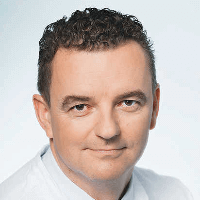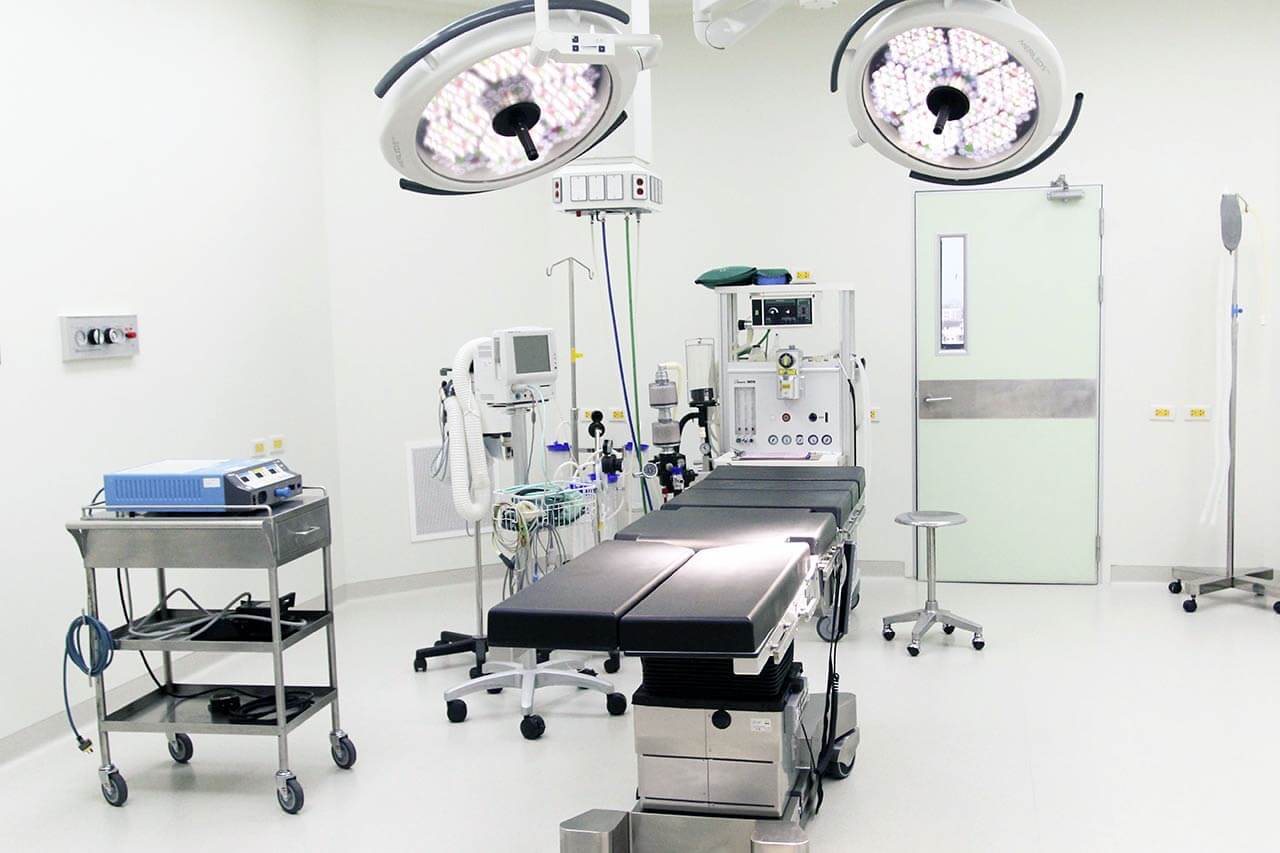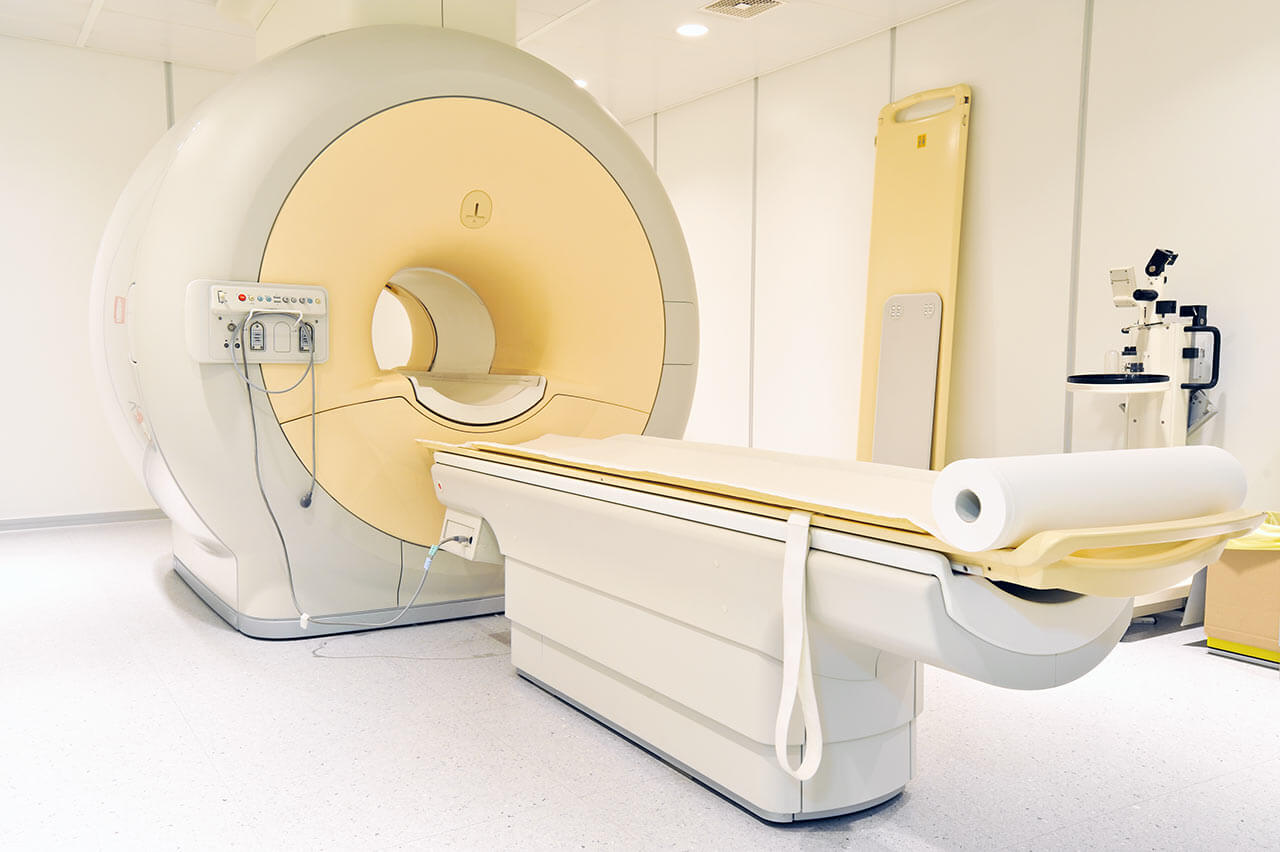
The program includes:
- Initial presentation in the clinic
- clinical history taking
- review of medical records
- physical examination
- laboratory tests:
- complete blood count
- general urine analysis
- biochemical blood test
- inflammation markers (CRP, ESR)
- blood coagulation analysis (aPTT, PT, INR)
- immunological diagnostic
- vitamin B12
- folic acid
- blood smear
- abdominal ultrasound
- bone marrow biopsy with histological study
(if indicated clinically, additional cost is 2500€) - differential diagnosis with other blood diseases
with impaired immunopoiesis - nursing services
- services of all leading experts
- explanation of individual treatment plan
Service
You may also book:
 BookingHealth Price from:
BookingHealth Price from:
About the department
The Department of Hematology, Oncology, Bone Marrow Transplantation, Immunology, Palliative Care, Infectology and Tropical Medicine at the Hospital Schwabing Munich provides the full range of preventive, diagnostic and therapeutic services in the fields of its competence. The department specializes in the treatment of benign blood diseases, bleeding disorders, blood cancer, malignant solid tumors of various localization, immunodeficiency disorders and infectious diseases. It should be noted that the department was the first in Germany to receive the status of the Cancer Center from the German Society for Hematology and Medical Oncology. In addition, it is part of the Comprehensive Cancer Center München (CCC München). The doctors have in their arsenal advanced diagnostic methods, as well as many effective treatments, ranging from bone marrow transplantation, immunotherapy, radiation therapy to high-dose chemotherapy using the most advanced drugs. The patients with terminal cancer receive palliative care aimed at improving their quality of life. The department treats more than 4,500 patients every year, so it undoubtedly has an excellent reputation.
The department is headed by Prof. Dr. med. Clemens Wendtner who can boast of vast clinical experience and thousands of saved lives of critically ill patients. The doctor is especially interested in the treatment of lymphomas and chronic lymphocytic leukemias.
The department's medical team is primarily focused on comprehensive diagnostics and treatment of malignant blood diseases, as well as malignant solid tumors of various localization. Such serious diseases require an interdisciplinary approach, and therefore the department regularly holds tumor boards with the participation of hematologists, oncologists, chemotherapists and other specialists who cooperatively develop the optimal treatment regimen for each patient, taking into account his particular clinical indications. The department's therapeutic options include chemotherapy, including high-dose one, radiation therapy, chemoradiation therapy, immunotherapy, cytokine therapy, immunomodulatory therapy, immunosuppressive therapy, autologous and allogeneic bone marrow transplantation and other therapeutic methods. Psychological care is an integral part of cancer therapy, since after the detection of cancer many patients fall into despair and lose hope of recovery. Thus, psychological support plays a particularly important role, since it helps the patient to cope with his emotions and set himself up for a favorable treatment outcome.
The department's doctors often admit patients with lymphomas and leukemias for treatment. The basis of treatment for these diseases is chemotherapy. However, in some cases, chemotherapy does not give the desired result, and then the only option is bone marrow transplantation. Autologous bone marrow transplantation (transplantation of the patient's own stem cells after their appropriate processing) has been performed in the department since 1995. In 2013, the doctors of the medical facility began performing allogeneic transplantation (donor stem cell transplantation). When providing this type of treatment, not only the transplantation procedure itself is important, but also the proper follow-up care for the patient in order to prevent the rejection of donor material. The department has 5 specially equipped rooms for the patients after bone marrow transplantation. These rooms are equipped with special HEPA filters and an air conditioning system, which creates optimal conditions for consolidation of the transplantation result and prevention of complications.
In the field of infectology, the doctors treat a wide range of infectious diseases, including meningitis, tuberculosis, various types of hepatitis, as well as HIV and AIDS. The competence of the department's infectologists also includes the treatment of tropical infections. It is worth noting that the medical facility has the only section in the entire state of Bavaria specializing in the treatment of very rare and life-threatening infectious diseases, for example, Ebola virus disease and severe acute respiratory syndrome. In addition, the department provides treatment to the patients with coronavirus infection (COVID-19).
The department specializes in the diagnostics and treatment of the following diseases:
- Benign blood diseases and bleeding disorders
- Immunodeficiency states
- All types of malignant blood diseases
- Malignant solid tumors of various localization
- Infectious diseases
- Meningitis
- Tuberculosis
- Different types of hepatitis
- HIV and AIDS
- Coronavirus infection (COVID-19)
- Tropical infections, including very rare and dangerous infections (such as Ebola virus disease and severe acute respiratory syndrome)
- Other diseases
The department's therapeutic options include:
- Chemotherapy, including high-dose one
- Radiation therapy
- Radiochemotherapy
- Immunotherapy
- Cytokine therapy
- Immunosuppressive therapy
- Immunomodulatory therapy
- Separation of certain types of blood cells
- Leukapheresis
- Erythropheresis
- Plasmapheresis
- Stem cell separation
- Bone marrow transplantation
- Autologous bone marrow transplantation
- Allogeneic bone marrow transplantation
- Other treatment methods
Curriculum vitae
Higher Education and Professional Career
- 1987 - 1993 Study of Medicine at the University of Westphalia.
- 1993 - 1995 Postdoctoral Fellowship at the Max Planck Institute of Biochemistry in Martinsried and at the National Institutes of Health in Bethesda, USA.
- 1996 - 1999 Clinical Fellow at the University Hospital of Ludwig Maximilian University of Munich.
- 1999 Admission to medical practice and board certification in Internal Medicine in Germany and the USA.
- 2000 Board certification in Hematology and Oncology.
- 2002 Habilitation at the Ludwig Maximilian University of Munich.
- 2004 Professorship in Internal Medicine, Hematology and Oncology, University of Cologne.
- At present, Head of the Department of Hematology, Oncology, Bone Marrow Transplantation, Immunology, Palliative Care, Infectology and Tropical Medicine at the Hospital Schwabing Munich.
Memberships in Professional Societies
- American Society of Clinical Oncology (ASCO).
- German CLL Study Group (DCLLSG) at the University of Cologne (Founding Member, Strategy Commissioner and Secretary).
Clinical Interests
- Treatment of malignant lymphomas.
- Treatment of leukemias – special focus on the treatment of chronic lymphocytic leukemia.
Photo of the doctor: (c) München Klinik Schwabing
About hospital
The Hospital Schwabing Munich is one of the oldest medical facilities in the Schwabing region with a history of over 100 years. The hospital is proud of the excellent state-of-the-art equipment, modern infrastructure, highly professional medical personnel and location in a picturesque park area. The medical complex is the academic hospital of the University Hospital of Ludwig Maximilian University of Munich and the University Hospital Rechts der Isar Munich, therefore, it offers unique innovative diagnostic and treatment methods. The treatment can be provided both on an inpatient and outpatient basis. The work of the medical center is based on an individual approach to each clinical case, as well as on the strictest adherence to high standards of quality, hygiene and safety.
The hospital has a large number of beds for patient hospitalization – more than 700 beds. The medical facility admits over 125,000 patients for diagnostics and treatment, and this figure grows steadily every year, which indicates the authority of the hospital not only in the region, but also throughout the country. In addition, the medical center often admits foreign patients for medical treatment.
The hospital presents almost all the main areas of modern medicine, including oncology, surgery, gynecology, gastroenterology, endocrinology, diabetology, otolaryngology, pulmonology, thoracic surgery, orthopedics, traumatology, neurosurgery, etc. In addition, the specialists of the hospital admit young patients for treatment, providing them with proper medical care.
Particular attention should be given to the competent team of doctors who have vast clinical experience, thanks to which they provide patients with effective treatment even in particularly complex clinical cases. According to the prestigious Focus magazine, many doctors of the clinic have been repeatedly ranked among the best German specialists. The experts also take care of the patients' comfort during treatment, surround them with care and show a humane attitude, supporting patients on their way to recovery.
Photo: (с) depositphotos
Accommodation in hospital
Patients rooms
The patients of the Hospital Schwabing Munich live in comfortable single, double and triple rooms with a modern design. The patient rooms have everything necessary for maximum comfort of patients. Each patient room has an ensuite bathroom with shower and toilet. All patient rooms are equipped with a telephone, which is available for an extra fee via a special card. The standard room furnishings include an automatically adjustable bed, a bedside table, a wardrobe, a table and chairs for receiving visitors. Wi-Fi is also available in the patient rooms.
If desired, the patient can stay in the enhanced comfort patient room, which additionally includes a safe, a minifridge and upholstered furniture.
The hospital also has a library with a large assortment of books, magazines, CDs and DVDs, a shop, a hairdressing saloon and a cafe where the patient can enjoy tasty snacks or a cup of hot tea, aromatic coffee and soft drinks.
Meals and Menus
The patients of the hospital are offered tasty and healthy three meals a day: breakfast, lunch and dinner. All dishes are cooked from fresh food available in the region. Breakfast and dinner are served buffet style, while for lunch the patient has a choice of three menus.
If you are on a specific diet for some reason, you will be offered an individual menu. Please inform the medical staff about your dietary preferences prior to the treatment.
Further details
Standard rooms include:
Religion
The religious services are available upon request.
Accompanying person
During the inpatient program, the accompanying person can live with the patient in a patient room or a hotel of his choice. Our managers will help you choose the most suitable option.
Hotel
During the outpatient program, the patient can stay at the hotel of his choice. Our managers will help you choose the most suitable option.




